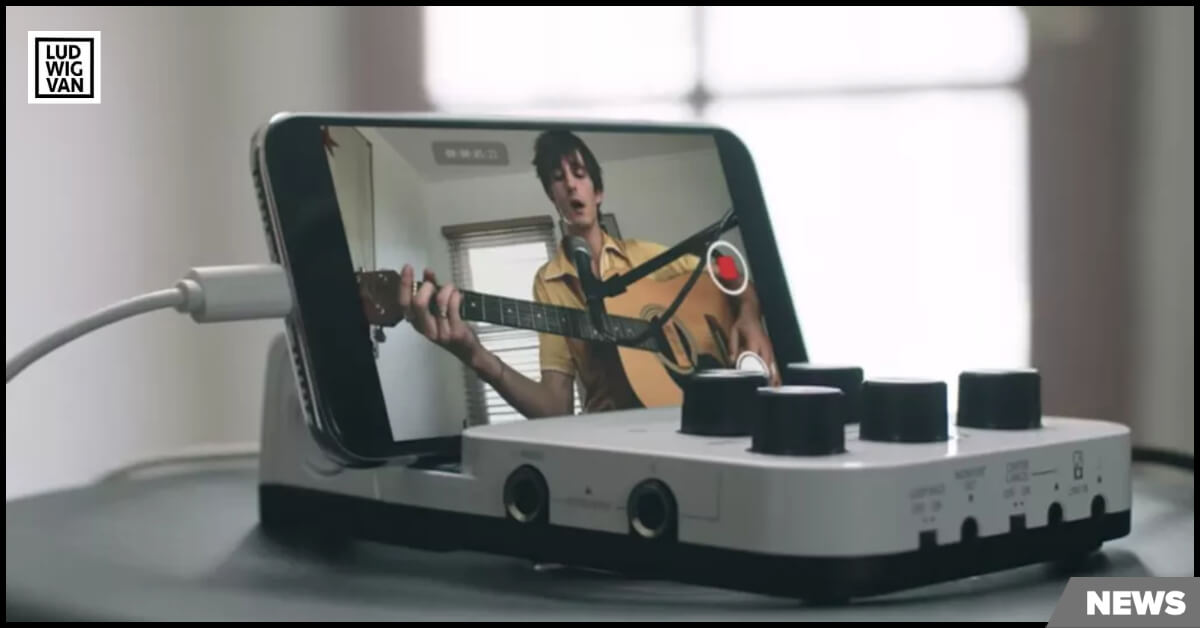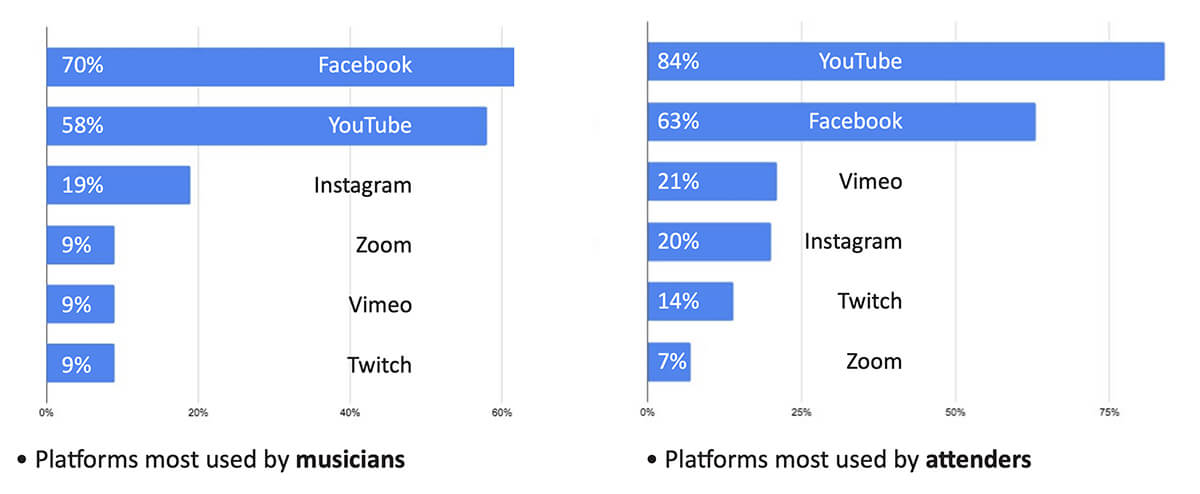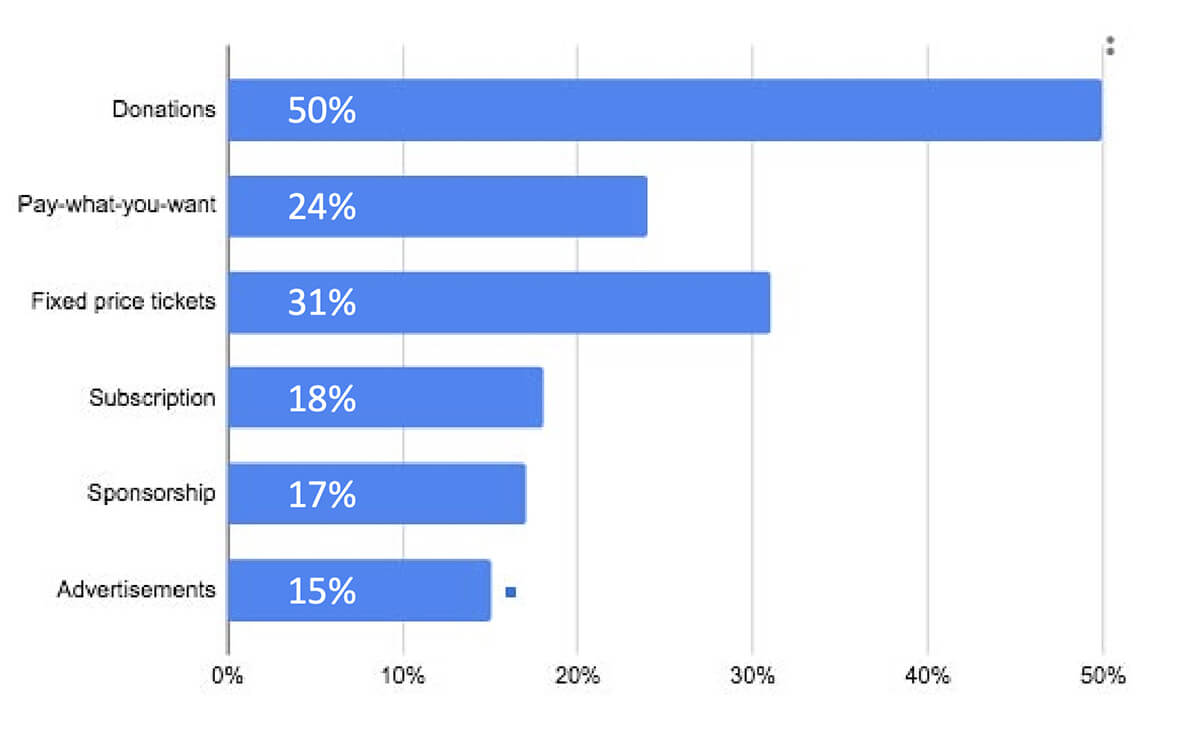
A new study from Middlesex University has uncovered some insight into how artists are feeling about livestreamed concerts.
The study involved approximately 1,500 professional musicians and fans. They asked each participant to fill out a survey designed to gain insights into the experience of livestreamed events. Interviews were also conducted, including musicians, concert promoters, and venues. At 29%, classical music made up the largest survey cohort. Jazz made up 19%. The other genres (folk, pop, rock, blues, and electronic music) made up a combined 52%.
The results showed musicians are remarkably bullish on livestreaming.
“Our research has highlighted how important it is for audience members to be able to communicate with, and feel connected to, each other and the musicians performing,” said Co-author Sam Leak, lecturer in Popular Music at Middlesex. “As a performer, this finding is interesting to me not only because it impacts my livestreaming practice, but also because it could well enhance the experience of my audiences in physical venues.”
The five key takeaways were:
- Livestreaming makes live music accessible
- Emotional engagement matters
- Audiences are willing to pay
- Musicians are dissatisfied with income
- Livestreaming is here to stay
The survey also included insight into the specific trends.
With technical know-how being a concern, musicians tended to opt for what they knew with Facebook and YouTube as the favourite two platforms.

Opinions seemed divided on whether or not legal knowledge was a barrier to livestreaming, especially with the differences between ticketed and free livestreams license requirements.
The big downside for musicians and audience alike was the lack of interaction. The idea of applause or cheering using a virtual text emoji just doesn’t have the same effect.
90% of musicians and 92% of fans agreed livestreaming will, in the future, be a successful tool to reach audiences unable or unwilling to go to physical venues. Over two-thirds of those surveyed agreed livestreaming will remain an essential part of the landscape after the pandemic.
71% of musicians firmly agreed that having little or no interaction with the audience was a barrier to livestreaming or to livestreaming more.
One of the most interesting findings was that a total of 71% were disappointed with how much money they made from their streams.
Despite the disappointment, 72% of live music fans and 74% of musicians agree that live-streamed performances should be paid for.
In addition, 62% of fans say the cost of paywalls for livestreamed shows isn’t a barrier. Over three-quarters (78%) of fans would be prepared to pay for a livestream show by an artist who is offering some other livestreamed content for free.
There was also a psychological issue informing decisions surrounding paying for livestreams. Despite an equivalent amount of effort, time, and resources that goes into producing a livestream, 93% of attendees and 80% of musicians agreed that tickets for livestreamed performances should cost less than tickets for live performances in a physical venue.
Donations was the most popular payment method.

According to Artistic and Executive Director John Gilhooly from Wigmore Hall in London, he sees livestreaming as a way to attract new wealthy donors from around the world. The livestreams events at Wigmore resulted in ~$1.7 Million (CAD) in revenue collected from donations during the online events.
The question begs to answer, though. What would have happened if they charged for those events rather than present as a way to get donations? Would they have made more? Now is the time to find out.
The research was funded by the Economic and Social Research Council and included King’s College London, the Musicians’ Union, the Incorporated Society of Musicians (ISM), and the Music Venue Trust.
Read the entire report here.
#LUDWIGVAN
Get the daily arts news straight to your inbox.
Sign up for the Ludwig van Daily — classical music and opera in five minutes or less HERE.
- THE SCOOP | Royal Conservatory’s Dr. Peter Simon Awarded The Order Of Ontario - January 2, 2024
- THE SCOOP | Order of Canada Appointees Announced, Including Big Names From The Arts - December 29, 2023
- Ludwig Van Is Being Acquired By ZoomerMedia - June 12, 2023



